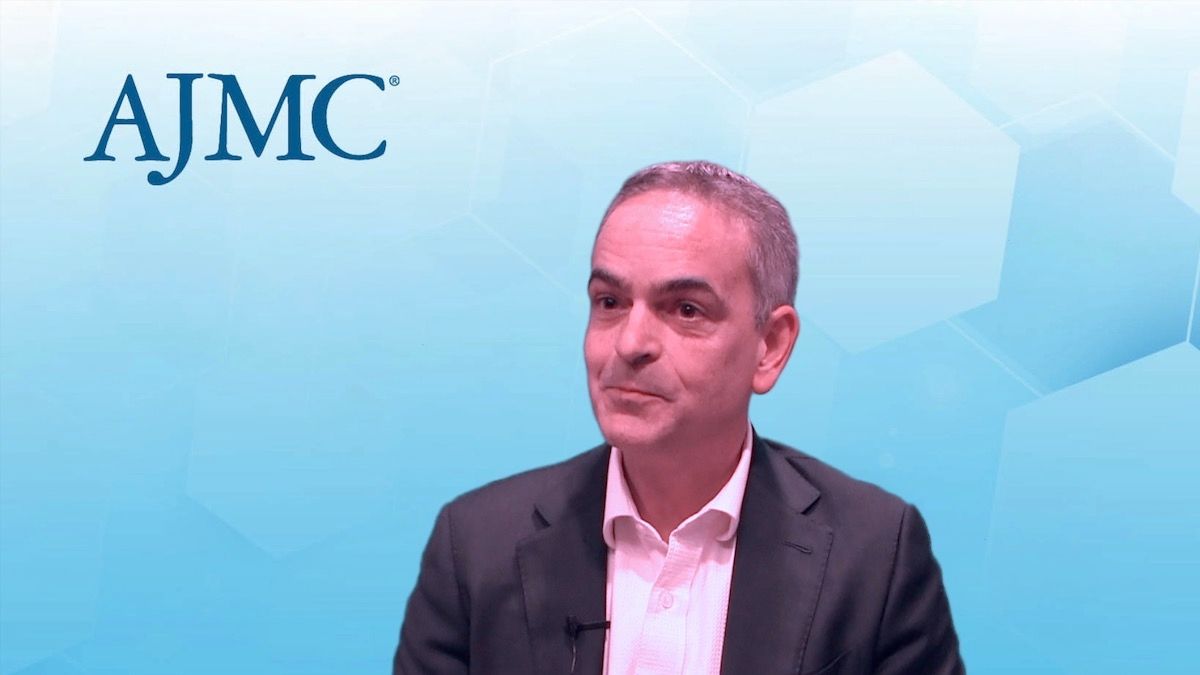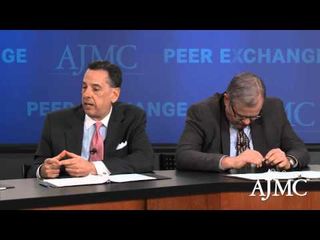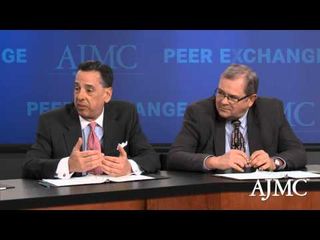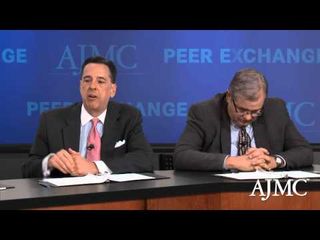
Health Care Cost
Latest News
Latest Videos

CME Content
More News
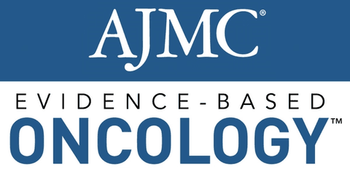
Utilizing real-world evidence that applies to the specific care needs of certain patient populations can promote timely decision-making among payers and providers on the use of effective cancer therapies available on the market, said panelists at the 2022 Patient-Centered Oncology Care® (PCOC) meeting.

There are 2 ranibizumab biosimilars approved in the United States, and with more ranibizumab and the first aflibercept biosimilars on the horizon, gaps in knowledge among retinal physicians should be addressed.

An increased risk of hospitalization for more than 6 days due to community-acquired infections was associated with male sex and admittance to the Pulmonology or Surgery department, with risk shown to differ according to pathogen.

Social Security and Medicare spending could double by 2023; FDA panel experts want naloxone to be available over the counter after the drug information is revised; Moderna announced its COVID-19 vaccines will stay free, and the Biden administration might keep tests and treatments free for the uninsured.

Unrecognized disease progression is associated with higher health care costs both for patients with end-stage kidney disease and late-stage (stages G4-G5) chronic kidney disease.

This study investigated the impact atopic dermatitis (AD) has on out-of-pocket (OOP) costs for caregivers of pediatric patients with the chronic skin condition.

Some communities will use COVID relief money to pay medical debt; residents living near train car derailment site in Ohio are worried about toxic chemical health effects; following medical guidelines point by point would create impossibly long workdays for providers, studies are pointing out.

Targeting everyday chronic conditions to rare diseases that require costly, sometimes 1-time treatments, CMS Tuesday announced an intent to test 3 new models in an effort to lower drug prices and widen access to expensive, life-changing therapies for patients in Medicare and Medicaid.

Implications of these findings include a more clear understanding of the burden imposed by heart failure (HF), which encompasses the cost of care and adverse health outcomes.

Congress has no solution for out-of-network ambulance rides; teenagers going to an emergency department in a mental health crisis don't receive necessary follow-up care; Medicaid explores nutritional benefits of food as medicine spending in some states.

The Biden administration released 2 sets of guidance documents for pharmaceutical manufacturers about how it plans to implement the new Medicare Prescription Drug Inflation Rebate Program as required under the Inflation Reduction Act, and said some beneficiaries could see lower coinsurance for some Part B drugs as soon as April 1.

Jessica Allegretti, MD, MPH, medical director of the Crohn's and Colitis Center, Brigham and Women's Hospital, discussed how the FDA’s approval of Rebyota for the prevention of recurrent Clostridioides difficile infection (CDI) may promote cost effective management of CDI for patients and health systems.

The findings emphasize a need for policies that may offset the impact of direct and indirect costs for patients with breast cancer.

The authors review a House Oversight Committee investigation report on AbbVie’s practices pertaining to adalimumab (Humira) to shed light on broader pharmaceutical market dynamics hindering a competitive market.

Drug costs, particularly for immunotherapies, contributed to the rising cost of care during the last 6 months of life for a fee-for-service Medicare beneficiary, according to a recent study.

Virtual care not only means saved time and costs for employees, but improvements to employers' bottom lines, through more proactive management of health concerns, notes UCM Digital Health CEO and co-founder Keith Algozzine.

In this column, a health insurance executive discusses 2 ways to address rising inflation, including moving past the traditional fee-for-service payment model.

The bill could have saved CMS about $26.5 billion had it been in place from 2018-2020, the study showed.

CDC warns against EzriCare Artificial Tears, which were recalled by the manufacturer; certain weight loss drugs not covered by most payers; Mississippi's Republican governor denies being privately in support of Medicaid expansion.

The first of at least 8 adalimumab biosimilars has finally launched in the United States after being kept off the market for years due to settlement agreements with the maker of the reference product, Humira.

The United States possesses the highest infant and maternal mortality rates compared with any other high-income country, even though it spends the most on health care.

An HHS report said that if the Inflation Reduction Act (IRA) had been implemented in 2020, Medicare Part D beneficiaries could have saved a total of $734 million, averaging out to about $500 per member.

A new study estimated Medicare drug price negotiation savings; food benefits provided under the Supplemental Nutrition Assistance Program (SNAP) will return to prepandemic amounts; pharmacies reduce hours to cope with staffing shortages, improve work-life balance.

Multiple adalimumab biosimilars will hit the US market in 2023, but the drug is still projected to have the largest price increase for the calendar year starting July 1.

A real-world study of health care resource utilization (HCRU) in patients with myasthenia gravis on second-line therapy identified the factors that led to increased financial burdens.



